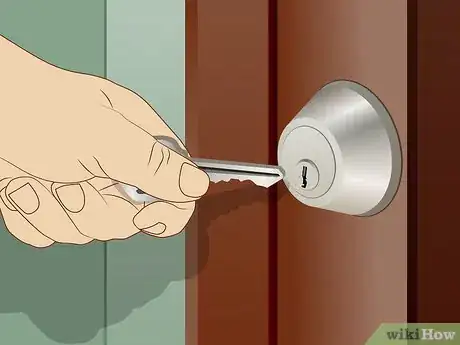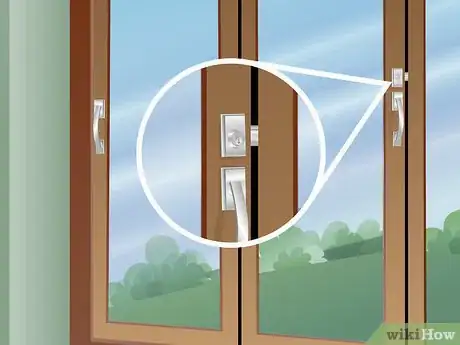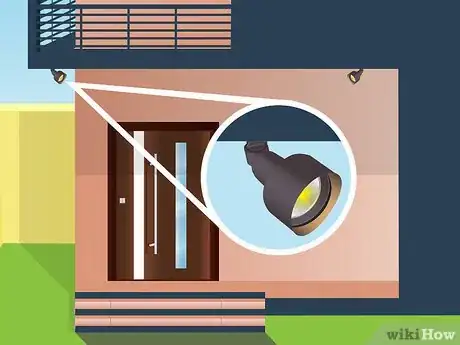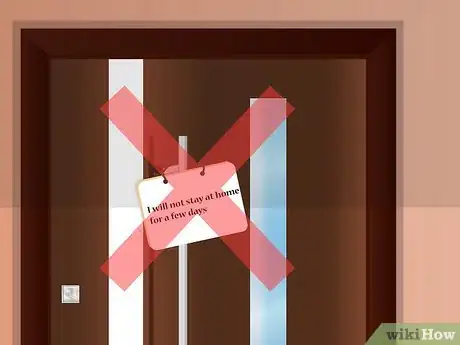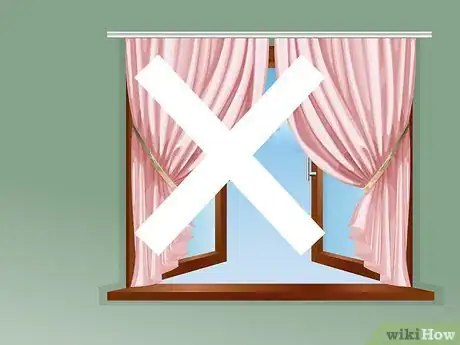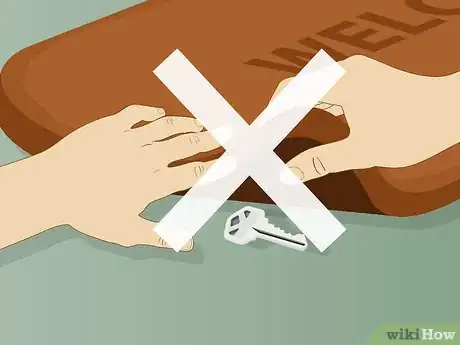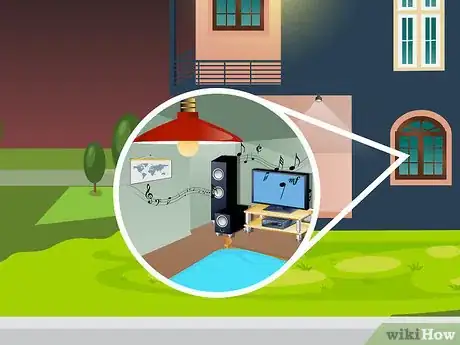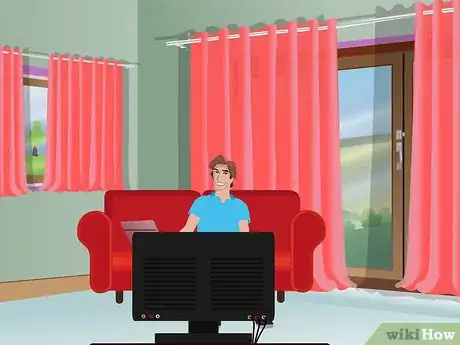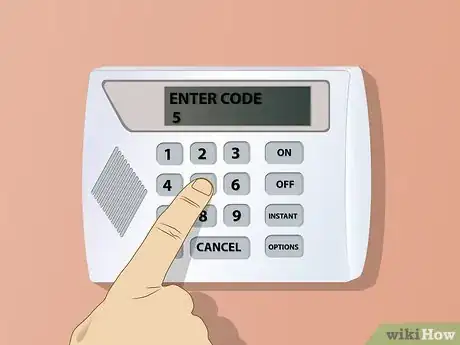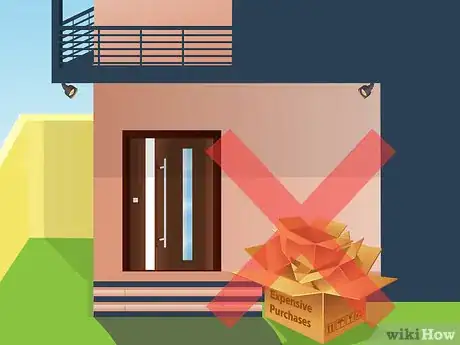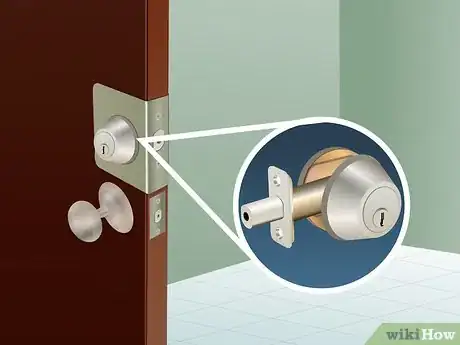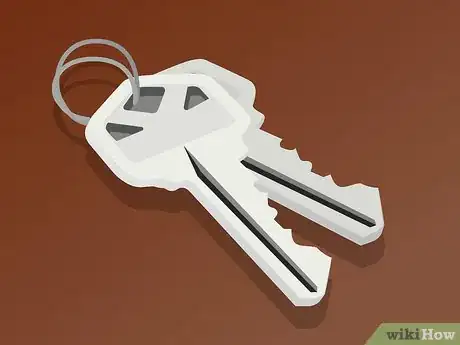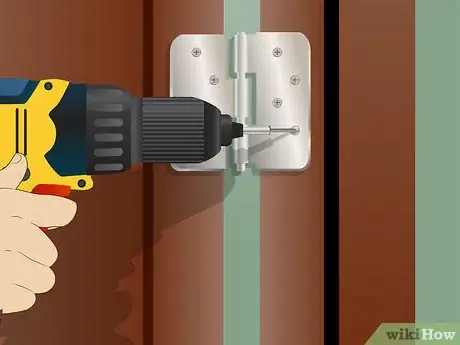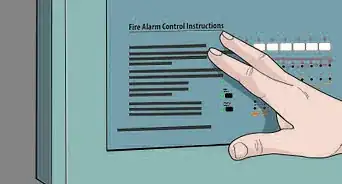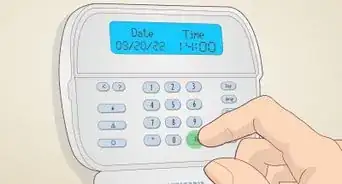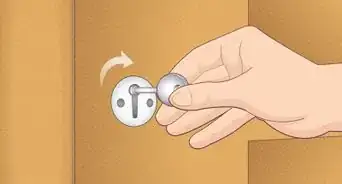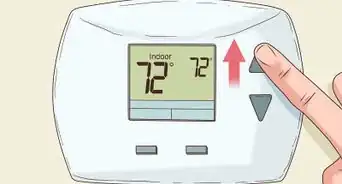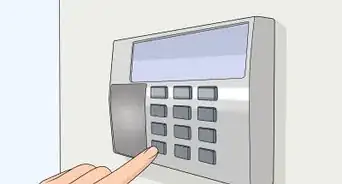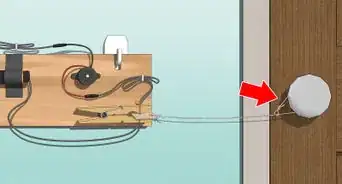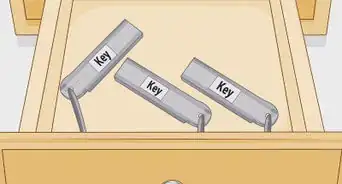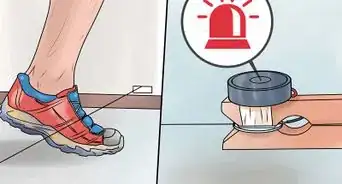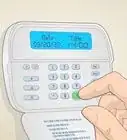This article was co-authored by Saul Jaeger, MS. Saul Jaeger is a Police Officer and Captain of the Mountain View, California Police Department (MVPD). Saul has over 17 years of experience as a patrol officer, field training officer, traffic officer, detective, hostage negotiator, and as the traffic unit’s sergeant and Public Information Officer for the MVPD. At the MVPD, in addition to commanding the Field Operations Division, Saul has also led the Communications Center (dispatch) and the Crisis Negotiation Team. He earned an MS in Emergency Services Management from the California State University, Long Beach in 2008 and a BS in Administration of Justice from the University of Phoenix in 2006. He also earned a Corporate Innovation LEAD Certificate from the Stanford University Graduate School of Business in 2018.
There are 7 references cited in this article, which can be found at the bottom of the page.
This article has been viewed 130,915 times.
If you’d like to increase your home security, you can take steps to deter thieves and burglars both while you’re home and while you’re away. Make your home unappealing to potential thieves by installing a security system and displaying a “Beware of Dog” sign. You can also discourage forced physical entry by securing external doors and windows and making sure to never leave a spare key outside.
Steps
Staying Secure when You’re Home
-
1Lock external doors at all times. Whatever other home-security steps you may take will be of little use if a burglar can walk straight in through the front door. Many robbers only enter homes when they find that a door is unlocked, in fact; most burglaries simply happen due to doors and windows being left unlocked. To prevent this, lock all external doors (front, back and side) at all times, even when you're home or are going for a short walk around the block.[1]
- If you have a balcony door, never leave it unlocked at night or when going out. Balconies could provide easy access to burglars.
- Garage doors provide access into your home, so treat them as any other door. Make sure they are locked properly, as well as the door that leads from the inside of the garage into your house.
-
2Lock your external windows and sliding glass doors. Ground-level windows and sliding doors are easy to open from the outside if they're left unlocked. If a thief finds that your front door is secured, they'll likely move on and try to enter your home through a window. Deter them by keeping windows locked at all times.
- If you're concerned about the security of your sliding glass door, drop a dowel or metal rod into the track on the inside. This will supplement the sliding door's lock (which is often weak).
Advertisement -
3Use exterior lighting to ward off potential robbers.[2] Well-lit entrances are an effective deterrent, as burglars will be looking for houses that they can enter with no likelihood of being seen. It will be harder for a thief to break in if there are lights placed at entry points to your house. Install lights near all exterior entrances.
- If you’re concerned about your house being broken into while you’re away overnight, install motion-activated floodlights in your front and back yards. Alternatively, you can set a timer on your indoor lighting to make your home appear occupied.
-
4Don't leave notes on the door. Even if you're just working in your own back yard, notes left to delivery services, friends, or visitors will advertise the fact that you're not inside the house. Not only will thieves look on your porch for packages to steal, but they'll also likely be inclined to enter your home and look for items to burgle.
Securing Your Home when You’re Away
-
1Close your curtains when you're away from home. Many thieves will scope out a house they’re planning to rob, to see if the owners have items worth stealing. Keep curtains closed in rooms with expensive equipment that could give burglars a peek into your home.[3]
- Even if you’re only going to be gone for an evening or a single night, it’s still best to close your blinds.
-
2Never leave a spare key hidden outside your house. Spare keys could be found relatively easy by a persistent burglar, especially if they’re stored in obvious places such as under the welcome mat or a plant pot. Thieves will check these locations first, and could gain easy access to your home.
- If you're concerned about accidentally locking yourself out of your home, give a spare key or two to a trusted neighbor, relative, or friend.
- If you need to keep a spare key, then store it in a dropbox set to unlock when either your phone is in range or you entered the correct security code.
- Another option would be to secure your door with an electronic lock instead of a manual one. Then, you wouldn’t need to worry about a key and could unlock your door with a code. Of course, avoid obvious combinations, like 1-2-3-4.
-
3Leave the lights, TV, and/or the stereo on while you're gone.[4] When you go out, leave a light on in any room in the house or play the TV or stereo at an audible volume. This will create the appearance that there are people in your house, even if you’re actually out for the night or the weekend. Thieves who believe a house is inhabited will think twice before breaking in.
- If you’re going to be away for a longer period of time and don’t want to leave the lights on (say, for two weeks), you can put interior lights or your TV on timers.[5] Timers are inexpensive and can be purchased at any hardware store.
-
4Ask a friend to make your house look inhabited. Your friend can come by your house two or three times a week to provide general external upkeep. Ask them to pick up your newspaper, post, and any packages you receive; to put out your rubbish, and bring the empty bins back in at night.
- These activities will give the appearance that someone is living in your house. This will discourage potential thieves, who would otherwise be inclined to rob an empty house.
-
5Hire a house-sitter for longer trips away from home. A house sitter can live in your house for the duration of your vacation. If that’s not feasible for some reason, ask the sitter to drop by daily and spend at least an hour or two at your house. If any potential thieves are watching your house, they’ll be deterred by seeing someone "living" in it.
- Be sure to give your house-sitter the code for your home security system so that they don’t accidentally set off the alarm and receive a visit from the police.
-
6Cut the grass and trim the hedges before you leave town. If a potential thief comes by and sees that the grass is not cut and newspapers are still on the porch, they'll see your house as an easy target. This is especially important when going on holiday. Trimming the lawn and hedges make your house secure (and look tidy) by making it look lived in.
- Giving your home the appearance of being occupied means the thief will move on to easier pickings. Thieves are generally lazy they try to make the easy money in an easy way. Don't give them a chance.
Deterring Potential Thieves
-
1Install a home security alarm system.[6] Alarm systems are one of the most common—and most helpful—forms of home security. Whether you’re home or away, if a would-be burglar attempts to break into your home, the alarm will alert local authorities and send you a notice as well.[7]
- A home security system could also scare off a persistent burglar. If a burglar did manage to break into your house, an alarm system could deter them from proceeding.
- You’ll receive a sticker with your home security system. Make sure to place the sticker somewhere that will be highly visible to potential thieves, as a front window of your house. The sticker alone will make potential burglars think twice.
-
2Give the impression that you own a dog. Burglars look for easy houses to rob, and if they're convinced that you have a guard dog, they'll avoid breaking in. You could either get an actual guard dog or just hang a few "Beware of Dog" signs near the entrance to your yard.
- Even if you don't own a dog, set a couple of (empty) dog bowls near your front step to further convince potential intruders that you own a dog.
-
3Dispose of boxes from expensive purchases. If you put the box from an expensive purchase out near your trash cans, it will be very visible. Anyone could drive past and see a plasma screen TV box in your bin and find you have got a new TV set in your home. If the average thief sees you have just gotten new, expensive items (especially electronics), they'll be drawn to your house.
- The same thing goes for a computer, stereo, video games console, and any other item that is easily portable and may be expensive.
- Instead, break the box down fully and put it inside of a large garbage can on waste collection day.
Securing External Entry Points
-
1Install a key-operated, Grade 1 deadbolt on external doors. A good deadbolt is a necessary home security measure. To install deadbolts, visit your local hardware store. Grade 1 deadbolts will come with the highest-grade security certificate.[8]
- If your front and rear doors are not locked by a deadbolt, a determined burglar could easily kick or shoulder their way into your house.
-
2Re-key the locks in a new house or if you lose a key. If you’re moving into a new house, replace all of the external locks, even if they’re high-quality, or have them re-keyed.[9] You’ll put yourself at risk if you don’t replace or re-key the locks, since the previous homeowner could have given out spare keys to people who, to you, are complete strangers.
- Also change your lock if you ever lose a key. Someone else might have picked it up, and could easily rob your home with the key.
-
3Replace screws on door jambs and hinges. A normal packaged lock bought at the hardware store will include small 1 inch (2.5 cm) screws. When you’re increasing home security, replace the short screws with longer screws that are at least 4–6 inches (10–15 cm) long.[10]
- Fastening the lock and hinges with longer screws will make it harder for a would-be home invader to kick in doors.
- You can find screws of any length at your local hardware store.
-
4Reinforce your windows. You have to replace your window with laminated safety glass, get window grills, and get professional-grade window locks.[11]
- Securing the windows will prevent a lot of burglaries.
- You can find these items at your local hardware store.
Expert Q&A
-
QuestionHow can I protect my home from theft?
 Saul Jaeger, MSSaul Jaeger is a Police Officer and Captain of the Mountain View, California Police Department (MVPD). Saul has over 17 years of experience as a patrol officer, field training officer, traffic officer, detective, hostage negotiator, and as the traffic unit’s sergeant and Public Information Officer for the MVPD. At the MVPD, in addition to commanding the Field Operations Division, Saul has also led the Communications Center (dispatch) and the Crisis Negotiation Team. He earned an MS in Emergency Services Management from the California State University, Long Beach in 2008 and a BS in Administration of Justice from the University of Phoenix in 2006. He also earned a Corporate Innovation LEAD Certificate from the Stanford University Graduate School of Business in 2018.
Saul Jaeger, MSSaul Jaeger is a Police Officer and Captain of the Mountain View, California Police Department (MVPD). Saul has over 17 years of experience as a patrol officer, field training officer, traffic officer, detective, hostage negotiator, and as the traffic unit’s sergeant and Public Information Officer for the MVPD. At the MVPD, in addition to commanding the Field Operations Division, Saul has also led the Communications Center (dispatch) and the Crisis Negotiation Team. He earned an MS in Emergency Services Management from the California State University, Long Beach in 2008 and a BS in Administration of Justice from the University of Phoenix in 2006. He also earned a Corporate Innovation LEAD Certificate from the Stanford University Graduate School of Business in 2018.
Police Captain, Mountain View Police Department If you can, leave your lights on while you're gone. That way, potential intruders will think someone's home and avoid your home.
If you can, leave your lights on while you're gone. That way, potential intruders will think someone's home and avoid your home.
References
- ↑ https://www.bobvila.com/slideshow/10-low-cost-ways-to-improve-your-home-security-29780/door-locks
- ↑ Saul Jaeger, MS. Police Captain, Mountain View Police Department. Expert Interview. 21 February 2020.
- ↑ https://www.bobvila.com/slideshow/10-low-cost-ways-to-improve-your-home-security-29780/security-blinds
- ↑ Saul Jaeger, MS. Police Captain, Mountain View Police Department. Expert Interview. 21 February 2020.
- ↑ https://www.bobvila.com/slideshow/10-low-cost-ways-to-improve-your-home-security-29780/light-timer
- ↑ Saul Jaeger, MS. Police Captain, Mountain View Police Department. Expert Interview. 21 February 2020.
- ↑ https://blog.allstate.com/10-tips-to-improve-your-homes-security/
- ↑ https://www.bobvila.com/slideshow/10-low-cost-ways-to-improve-your-home-security-29780/door-locks
- ↑ http://www.acmelocksmith.com/new-home-security/
